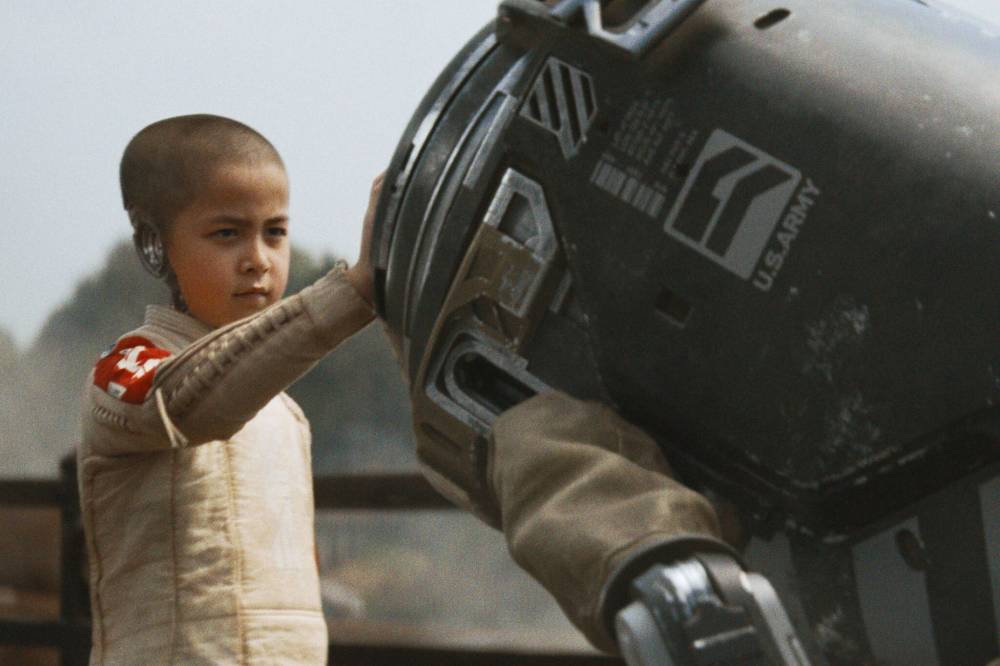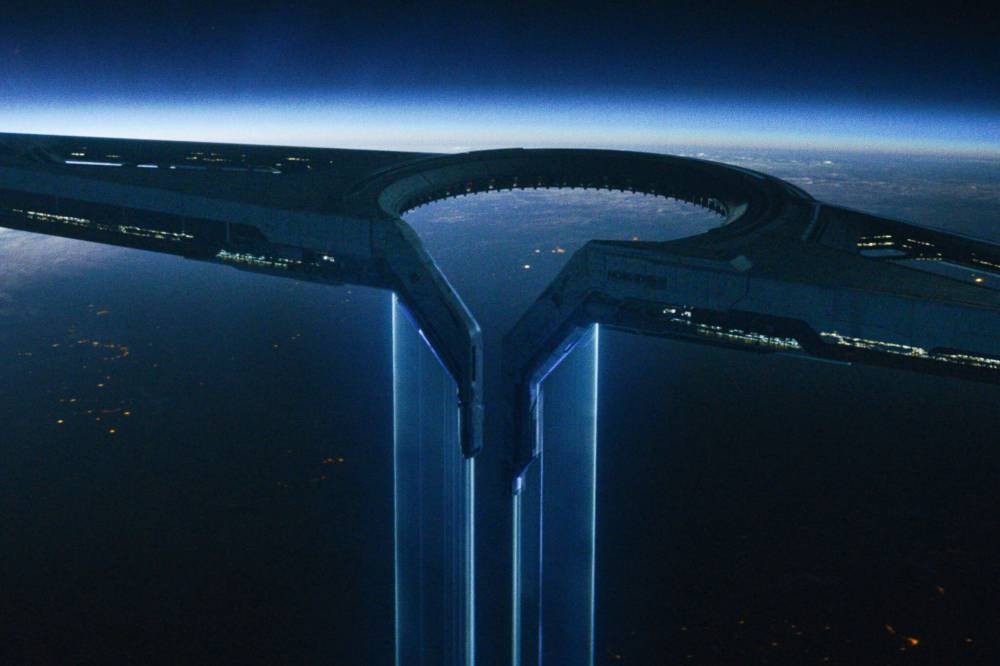Spectacular visuals but AI flick lacks humanity
Spectacular visuals drive ambitious project
Advertisement
Read this article for free:
or
Already have an account? Log in here »
To continue reading, please subscribe:
Monthly Digital Subscription
$1 per week for 24 weeks*
- Enjoy unlimited reading on winnipegfreepress.com
- Read the E-Edition, our digital replica newspaper
- Access News Break, our award-winning app
- Play interactive puzzles
*Billed as $4.00 plus GST every four weeks. After 24 weeks, price increases to the regular rate of $19.00 plus GST every four weeks. Offer available to new and qualified returning subscribers only. Cancel any time.
Monthly Digital Subscription
$4.75/week*
- Enjoy unlimited reading on winnipegfreepress.com
- Read the E-Edition, our digital replica newspaper
- Access News Break, our award-winning app
- Play interactive puzzles
*Billed as $19 plus GST every four weeks. Cancel any time.
To continue reading, please subscribe:
Add Winnipeg Free Press access to your Brandon Sun subscription for only
$1 for the first 4 weeks*
*$1 will be added to your next bill. After your 4 weeks access is complete your rate will increase by $0.00 a X percent off the regular rate.
Read unlimited articles for free today:
or
Already have an account? Log in here »
Hey there, time traveller!
This article was published 29/09/2023 (715 days ago), so information in it may no longer be current.
This sci-fi parable about humankind’s relationship with AI is not a reboot. It’s not a sequel. It’s not part of a franchise or a multiverse or an adaptation of a five-book YA series. The Creator is an ambitious new project from director and co-writer Gareth Edwards (Rogue One, Godzilla) and that’s admirable.
But it’s an original movie that’s not original enough, a standalone movie that doesn’t quite stand up. Despite spectacular visuals, some fascinating world-building and weighty, non-generic special effects, the overall story feels confused and slightly synthetic, as if bits of Blade Runner, RoboCop, Star Wars, The Terminator and Apocalypse Now had been fed into an AI-powered language model.
The movie starts with a “Tomorrow Today”-type newsreel that takes us from peppy ’50s optimism to rise-of-the-machines existential threat in less than two minutes. We learn that Artificial Intelligence has somehow caused a nuclear explosion in Los Angeles, killing more than a million people.
Now in 2065, America has eliminated AI in the West and vowed to hunt it down wherever it remains, especially in New Asia, where humans, robots and simulants — AI beings with humanoid features — peacefully co-exist.
Joshua (John David Washington of Tenet and Amsterdam) is a special forces operative who’s been deployed to New Asia, but when his pregnant wife Maya (Eternals’ Gemma Chan) disappears during an American military raid, it becomes hard to know where his loyalties lie.
Returning stateside, traumatized and alone, Joshua is doing a routine clean-up job at the L.A. blast site when he’s approached by a persuasive military official (Alison Janney). She wants him to go back to New Asia to destroy a secret new AI weapon, luring him with the hope he’ll find Maya alive.
Things take a turn when the weapon is revealed to be a small, sweet simulant girl whom Joshua names Alphie (newcomer Madeleine Yuna Voyles, who really is a find.) Joshua, who initially sees AI as “just programming,” is reluctantly drawn into protecting her. As the pair goes underground to evade capture, he observes simulants who love each other, bury their dead, practice their religion and who often seem more human than the humans around them.
One senses that Edwards wants to raise serious issues — about American imperialism, about the war on terrorism, about the risks and rewards of technology, about human evolution — but he lacks follow-through.

The Creator wants to be serious but manages only to be heavy, its themes remaining incoherent and incomplete. In particular, in a film all about the intermingling of people and technology — Joshua himself has two bionic limbs — The Creator is weirdly incurious about what the flashpoints between humanity and artificial intelligence could be.
Washington is trying — trying hard — but he isn’t given much to do. And the man seems fated to be in movies that don’t make sense. Conflicts are contrived, motivations are muzzy and in the war between America and New Asia, between humans and AI, each side’s abilities carom from practically omnipotent to completely useless, depending on what the narrative requires for the moment.
All these story problems are even more frustrating because of Edwards’ genuine talents. With lots of global location shooting and the avoidance of endless green-screen and overly bombastic CGI, he has crafted a visual world that feels both fantastic and real. What’s missing is the essential human element.
alison.gillmor@winnipegfreepress.com

Studying at the University of Winnipeg and later Toronto’s York University, Alison Gillmor planned to become an art historian. She ended up catching the journalism bug when she started as visual arts reviewer at the Winnipeg Free Press in 1992.
Our newsroom depends on a growing audience of readers to power our journalism. If you are not a paid reader, please consider becoming a subscriber.
Our newsroom depends on its audience of readers to power our journalism. Thank you for your support.


